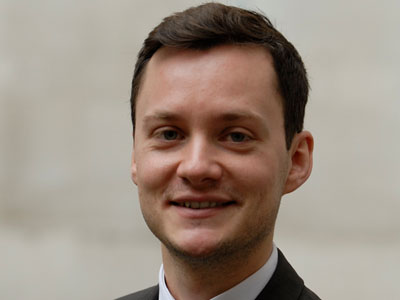Speaker's Corner - Junior doctor contracts and why we should all be worried
This month Dr Ben Molyneux gives his views on the junior doctors contract dispute. Ben is a sessional GP and member of City & Hackney LMC. He is also a member of the BMA GP Committee, and previous Chairman of the Junior Doctors Committee.
sessional GP and member of City & Hackney LMC. He is also a member of the BMA GP Committee, and previous Chairman of the Junior Doctors Committee.
Junior doctor contracts and why we should all be worried
What’s this about striking?
Waving placards, marching on streets and threats of strike action are activities you might associate with railways workers and students, but not normally with junior doctors. Juniors are usually viewed as a fairly stoic bunch so it has come as a surprise to many, not least the government, that so much anger has erupted over the proposed new contract.
Looking back to when I was involved with the initial negotiations, those were the rosy days of minimal political interference and getting on with the issues. Since then, unfortunately, what could have been an agreeable settlement has turned into a pitched battle.
What’s the problem?
There is plenty of information from the BMA on what the issues are. The headlines are potential pay cuts for many – the BMA pay calculator has shown up to 30% cuts in some cases - and the GP trainee supplement is particularly vulnerable. Pay progression will end, so those who take time out for academic study or parental leave will earn less than their peers. Perhaps worst though, is the loss of safeguards against working excess hours, and a move to make a normal working week anything within 7am-10pm Monday to Saturday. There will be little to prevent the days of tired doctors putting patients at risk coming back to haunt us.
Where are we now?
After the BMA refused to negotiate until the above issues were removed as pre-requisites for discussion, Jeremy Hunt threatened to impose the contract instead. This gun to the head has galvanised juniors in a way I have never witnessed before and we now see protests all around the country, stories in every paper, and even traditionally anti-doctor outlets looking on favourably.
Since the BMA has announced it will ballot the membership for industrial action, over 5,000 new members have signed up as a result. Those wishing to respond to the ballot need to be registered with the BMA by 29 October. A Facebook group has over 51,000 members actively discussing different methods to get the message out to the profession, the public, and to government. There have been multiple protest events, and the biggest of these so far is a march planned for 17 October. This march has been arranged entirely by grassroots juniors in between their shifts and this huge amount of work demonstrates just how strongly people feel.
Why is this important?
You may be reading this thinking, “I’m a GP, I have my own issues to worry about” and that is true, however, I believe this is wider than the junior doctor contract. This is the opening move from government to move all NHS staff onto 7-10, seven days per week rotas for no additional pay. If we don’t support juniors now then nurses, physios and GPs will all be next to see unilateral contract changes to suit the government agenda. We must do all we can to support the juniors, because if we win this battle to see justice for our colleagues and our patients, then maybe, just maybe, they will think twice before they come for us.
I’ll be marching to support juniors on 17 October; I hope to see some of you there.
Last updated : 11 Nov 2015
Nursing and Midwifery Council revalidation (14 Oct 2015)
The Nursing and Midwifery Council (NMC) have introduced revalidation for all nurses and midwives in the UK: the most significant change to regulation in a generation. Revalidation means that everyone...Training and development events (14 Oct 2015)
Londonwide Enterprise Ltd (the training arm of Londonwide LMCs) have been looking back over their work this year. The team have delivered 34 training sessions since January 2015, attracting 995...Quality and Outcomes (QOF) collection failure notice (14 Oct 2015)
The recent Quality and Outcomes Framework (QOF) information collection has not been successful due to a technical issue and the Health and Social Care Information Centre (HSCIC) is aware of...General Practitioners and mental health and well-being (14 Oct 2015)
At the halfway point in our series of mental well being masterclasses, workshop partner and PHP founder Dr Clare Gerada says the key challenge facing the NHS is GP...London GP Leader Calls for Recognition, Not Grand Schemes (07 Oct 2015)
Dr Michelle Drage, CEO of Londonwide LMCs - the representative body for GPs in London, has commented on the Secretary of State for Health's recent remarks about general practice: Statement...Effective Chaperoning in General Practice (07 Oct 2015)
Engaging Patients - Why you should and how you can - 4 November 2015 - places still available (30 Sep 2015)
Londonwide EventsSeptember newsletter now available (16 Sep 2015)
Londonwide LMCs NewsletterLife in general practice today – the Commonwealth Fund would like your views. (15 Sep 2015)
During the summer, the Commonwealth Fund in New York conducted a survey of GPs in the US and England to assess how front line doctors are feeling about practising...Guidance
We provide expert guidance for practices in our guidance section, as well as an archive of other materials you may find useful.
GP Support
Contact our GP Support team if you need help or advice.
The team provide professional and pastoral support to GPs and practice teams on a broad range of issues.

